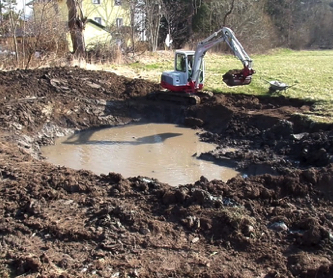GARTENPFLEGE
NACHHALTIGE LANDWIRTSCHAFT
WALDGARTEN & AGROFORST
ABFALLWIRTSCHAFT & KOMPOSTIERUNG
SUPERVISION
Gartenbau
GARTENPLANUNG
SELBSTVERSORGUNG
Konsulting
LEBENSRAUM PLANUNG & GESTALTUNG
PROJEKTENTWICKLUNG
ignal, Wire, Whatsapp, Skype
Ökologisch, ökonomisches Konsulting
PDKs / PDCs
Nachahltige Lebensraumgestaltung
Kurse
Impressum
Gartenbau
Gartenplanung
Gartenpflege
Kompostierberatung
Selbstversorgung
Umweltmanagement
Group Mentoring
Abfallwirtschaft
Praktische Planung
Workshops
Kerstin +43 660 233 76 37
Christoff +43 664 415 0110
Threema, Signal, Skype
⁄







The Gaia Aid Organisation
Videos
Internship
Team
Permaculture
Contact
HOME



Course topics
1. Introduction
History of Permaculture. What can permaculture do for you? What is permaculture? What does "sustainability" mean, the green revolution,
Permaculture Design Certificate Course, accelerated climate change, peak oil, the ecological footprint, the exponential function.
2. Principles of sustainable habitat planning & design.
The 7 pillars of permaculture by Christoff Schneider, the earth as a living organism, natural cycles, energy & entropy,
practical design considerations, prudence in problem solving, holistic & systemic thinking & action,
reap a harvest, diversity & increasing yields, niches, cycles, conservation & storage.
3. Practical planning tool
General & practical design considerations & basic issues, first steps in planning, sector planning & zoning, reading contour lines, cadastral plans, etc, energy flows & arrangement of areas and elements, closing cycles, succession & maintenance of systems
4. Pattern language of nature
The 4 Ws = energy flow in landscapes, application of natural patterns in design, edge zone effects,
pattern language of indigenous peoples, meaning of spirals & circles in habitat planning
5. Climate
Origin of weather, precipitation and wind, different climate zones,
influence of albedo effect, of frost, light, windbreaks, on vegetation, local weather patterns, microclimate, tornadoes & hurricanes
6. Trees
and their influence on soil, water, climate & biosphere,
the creation & benefits of forest gardens, edible forests, agroforestry & hedgerows, syntropic agriculture
7. Water
What is water? The water cycle, precipitation & evaporation, water storage, water treatment, water & soil,
keyline, swales, dam construction, pond construction, grey water, black water, biotopes & natural pond with & without foil
8. Aquaculture
History, ponds, dams, swales, chinampas, importance of water quality, costs, fish stocking, feeding, mixed culture, marginal zones, planting,
Crab farming, aquaculture, hydroponics, aquaponics, yields outside aquaculture.
9. Soil
Soil formation, soil structure, soil stress & erosion, soil classification, soil tests, soil organisms, humus build-up, nutrients & fertilisation,
to top yields with composting, earthing up, compost extract, Terra Preta, Bokashi, worm farming, humus build-up on difficult soils, weed barriers,
Characteristics and creation of different bed forms and types, raised beds, mound beds, keyline, dealing with diseases & pests
10. Earthworks
When is earthwork ethical, different earth resources, different types of land surveying, planning and timing of earthworks, planting after earthworks, slope assessment, slope safety, slopes & terracing, earth structures.
11. Permaculture in cold climate
climate features, house design, ecological building materials, adobe, straw bale construction, earthen construction, energy supply, passive solar design, water supply,
the home garden, greenhouses, orchards, mushroom growing, orchards, polyface rotational grazing, fences, food processing, stockpiling, animal tractor, planning settlements & villages
12. Permaculture in the tropics
Climatic features, house design, natural climates, water supply, the home garden, forest garden, agroforestry, pasture management, food processing & storage, integrated livestock management, settlement & village planning, first aid
13. Permaculture in drylands
Climate features, desertification, desert houses, desert cities, ecological building materials, water management, watersheds,
protection from salinisation, humus build-up, the home garden, desert gardens, wildlife management, planning settlements & towns, wildfires & fires
14. Strategies for the next 7 Generations
NGOs, compound interest, ethical foundations of an alternative nation, Transition Town, ownership, regional organisations,
alternative currencies & alternative financial system, ethical investment, aid & assistance to needy people & areas, barter circles,
CSA = community agriculture, community gardens, ecological, economic work, the 5 rings of sustainable help for self-help.

85h Permaculture Design Certificate Course 2023
Permaculture Design Certificate Course with PRI Certificate
Even though the 85 hours will be filled with enough theory, practical exercises form a varied part of the course in between.
- Making Kobucha or Kefir. Fermenting of vegetables
- Making sourdough & baking bread
- Collecting and processing wild herbs
- Stratification of seeds & taking cuttings
- Cold & hot composting. Making Terra Preta
- Each participant plans his or her own permaculture project to put into practice what he or she has learned.
- Morning circle, an important tool to strengthen the sense of community and harmonise the group dynamics.
- Design exercises
- Soil testing
- Reading the landscape
- Alternative composting toilet systems
At the different course locations, depending on the available resources, spatial possibilities, the need, weather & remaining time, individual
some of the following elements can be put into practice;
Hot composting, digging Kontiki, creating raised, mounded, garden beds, herb spiral, building simple clay oven for pizza & bread, building bottle window, building Rocket stove with pyrolysis, fruit tree pruning & grafting, compost toilet, building a worm farm, field trips . . .
We ask for your understanding that due to the extensive material covered in this course, a Permaculture Design Certificate course is rather theory-heavy. We therefore offer additional workshops and advanced courses for learning the above-mentioned elements.
Workshops 2023
We are the only school in the German-speaking world certified by the Permaculture Research Institute Australia* to teach Permaculture Design Certificate courses according to the curriculum and guidelines of Bill Mollison and the PRI*. Therefore, this course is also completed with the internationally recognised certificate of the Permaculture Research Institute Australia.
Permaculture Design, which was awarded the Right Livelyhood Award in 1981, teaches life skills that are often not even rudimentary in today's education and training system.
No previous knowledge is necessary. Some familiarity with the subject matter is certainly an advantage. Practical exercises and possible excursions deepen what has been learned and make this course a unique experience.
As experience shows, this seminar offers the ideal framework for planning an existing property, or my own personal dream property that is yet to be discovered. Especially at the beginning of a project, or when buying a property, a lot of money can be saved by recognising potential & possibilities & an energy-efficient, ecologically compatible planning.
During these two weeks, each course participant plans a permaculture project independently in order to immediately put into practice what they have learned.
In our intensive courses & workshops we share more than just the most important pillars of sustainable habitat planning, self-sufficiency & resilience building in theory and practice. In our eyes, a Permaculture Design Certificate Course is the best and most effective way to get the necessary knowledge foundation & a very good overview of the possibilities of crisis-proof, sustainable habitat design in a short time. For us and for many friends & companions it was life-changing. Many strategies & tools will help you reduce your ecological footprint & increase your independence.
This course gives a comprehensive insight into permaculture design. Starting with the historical background of permaculture, through ethical and moral issues, to current ecological and economic topics.
We look forward to learn, laugh and celebrate with you.
❀ Permaculturally Kerstin & Christoff
Pratical exercises




